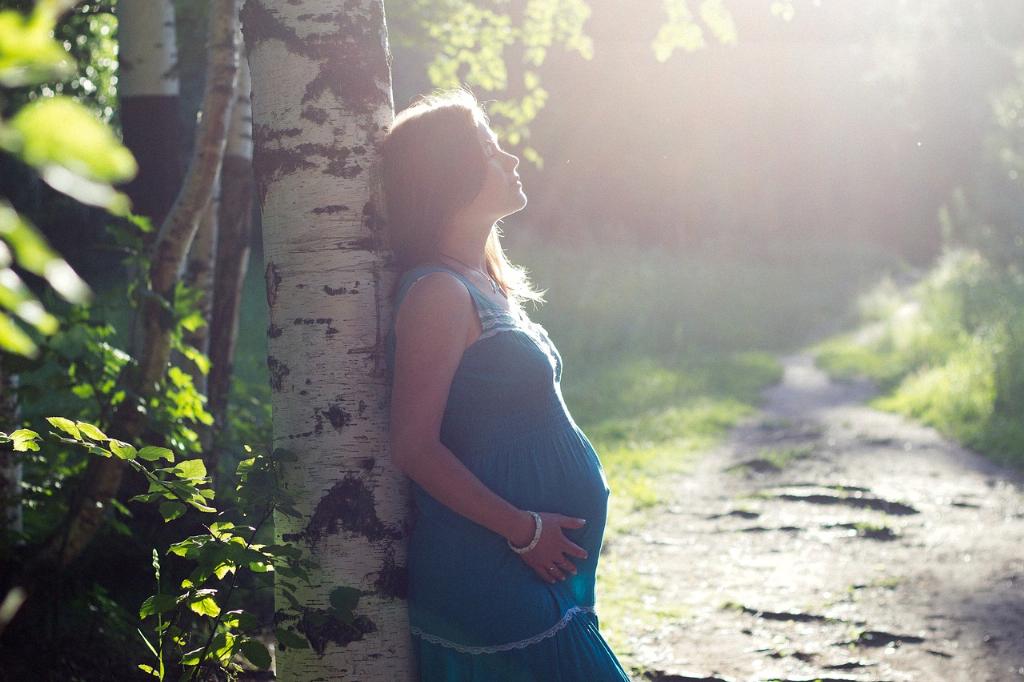As women age, their bodies undergo numerous changes, one of the most significant being menopause. However, before reaching menopause, there is a transitional phase known as perimenopause. During perimenopause, women may experience various symptoms such as irregular periods, hot flashes, and mood swings. Despite these changes, one common question that arises is whether it is possible to get pregnant during perimenopause.
Understanding Perimenopause
Perimenopause typically occurs in women in their late 40s to early 50s, although it can start as early as the mid-30s for some individuals. During this phase, hormone levels fluctuate, leading to changes in the menstrual cycle. While fertility declines with age, it is important to note that pregnancy can still occur during perimenopause.
Ovulation and Pregnancy
One key factor to consider is ovulation. Even though a woman may experience irregular periods during perimenopause, ovulation can still occur. This means that the release of eggs continues, increasing the potential for pregnancy. As long as ovulation occurs, there is a possibility of fertilization and conception.
Risk of Pregnancy During Perimenopause
While the likelihood of getting pregnant during perimenopause is lower compared to younger reproductive years, it is not entirely impossible. Some women may assume they are no longer fertile due to the irregularity of their menstrual cycles, only to be surprised by a pregnancy. It is essential to be aware of the continued risk of pregnancy during this transitional phase.
Consulting with a Healthcare Provider
If you are in perimenopause and have concerns about the possibility of pregnancy, it is crucial to consult with a healthcare provider. A healthcare professional can offer guidance on contraception options and provide insight into reproductive health during this stage of life. Open communication with your doctor is key to addressing any questions or uncertainties.
Emotional Considerations
Discovering a pregnancy during perimenopause can evoke a range of emotions. Some women may feel surprised, confused, or even anxious about the prospect of becoming pregnant later in life. It is normal to have mixed feelings about this situation, and seeking support from loved ones or a mental health professional can be beneficial.
Age and Pregnancy Risks
Advanced maternal age, which includes pregnancies during perimenopause, can pose certain health risks. Older women may be at a higher risk for conditions such as gestational diabetes, high blood pressure, and chromosomal abnormalities in the fetus. Understanding these potential risks is important when considering pregnancy during perimenopause.
Family Planning Options
For women navigating perimenopause and considering their reproductive choices, exploring family planning options is essential. Whether you are looking to prevent pregnancy or actively trying to conceive, discussing your preferences with a healthcare provider can help you make informed decisions that align with your lifestyle and goals.
Education and Awareness
Increasing awareness about fertility and pregnancy during perimenopause is crucial for women approaching this stage of life. By expanding knowledge about the potential for conception and the importance of contraception, individuals can make empowered choices regarding their reproductive health and future plans.
Personal Stories and Perspectives
Listening to personal stories and perspectives from women who have navigated pregnancy during perimenopause can provide valuable insights and support. Sharing experiences, challenges, and triumphs within a supportive community can foster connection and understanding among individuals facing similar circumstances.
Conclusion: Navigating Pregnancy During Perimenopause
In conclusion, while the likelihood of getting pregnant during perimenopause may be lower than during younger years, it remains a possibility due to ovulation and fluctuating hormone levels. By staying informed, communicating with healthcare providers, and exploring family planning options, women can approach this transitional phase with awareness and empowerment.

